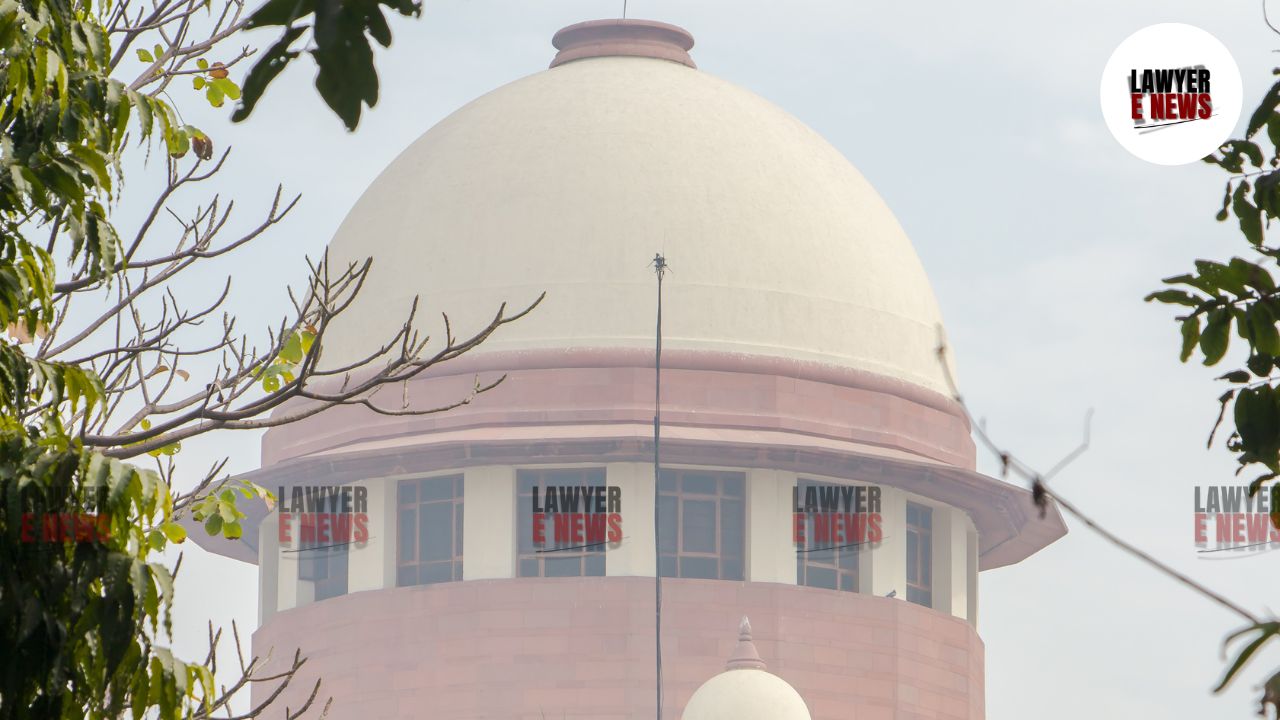-
by Admin
15 February 2026 2:36 AM



Supreme Court of India upheld the Telangana High Court’s decision to quash charges against two respondents in Aruna Dhanyakumar Doshi v. State of Telangana, finding that general allegations without clear evidence against the accused did not warrant further investigation. This ruling underscores the importance of substantiated claims in complaints, especially in cases involving alleged coercion, abuse, and exploitation within family structures.
The appellant, Aruna Dhanyakumar Doshi, filed an FIR against her son, daughter-in-law, and other family members, alleging coercion, confinement, and harassment. The dispute revolved around two gift deeds executed in 2017 by Aruna and her late husband, gifting property and a flat to their son and granddaughter. After the husband’s death in 2020, Aruna claimed that she and her husband had been pressured to execute these deeds under duress from her son (the second respondent) and his wife (the third respondent).
The appellant submitted several complaints, with her initial allegation in a 2019 letter written by her husband to the District Magistrate, Hyderabad, expressing concerns of coercion. However, the appellant’s first formal complaint to police authorities surfaced in November 2020, where she reported her life was endangered due to threats from her son and daughter-in-law. By January 2021, an FIR was registered on these grounds, and subsequent complaints were made, alleging broader familial abuse.
In response, the accused filed a petition under Section 482 of the Criminal Procedure Code to quash the FIR, and the Telangana High Court allowed partial quashing for two of the accused, namely Aruna’s granddaughter and her in-law (respondents four and five), citing the absence of specific allegations against them. The appellant challenged this decision in the Supreme Court, arguing that the quashing was premature, especially as the police investigation was still underway.
The Court’s analysis focused on whether the appellant had made clear, substantive allegations specific to the fourth and fifth respondents:
General vs. Specific Allegations: The Supreme Court highlighted the absence of specific allegations targeting the quashed respondents. Justice Abhay S. Oka noted, “There are only vague and general allegations against the 4th and 5th respondents,” and that no clear role was ascribed to them in the appellant’s complaints. The Court clarified that vague claims without explicit evidence are insufficient grounds for prolonged criminal proceedings.
Delay and Inconsistency in Complaints: The Court observed that there was a significant delay between the alleged harassment (2017) and the first formal complaint (2020), which weakened the appellant’s claims. It noted that Aruna’s husband, despite his reported fear, took over a year to voice concerns about the alleged coercion, raising doubts about the credibility and urgency of the claims.
Lack of Grounds for Investigation: The judgment referenced Neeharika Infrastructure Pvt. Ltd. v. State of Maharashtra, stressing that an FIR must reflect a credible basis for investigation. Here, the Court concluded that because the appellant’s allegations against the fourth and fifth respondents were unspecific and lacked evidentiary support, continuing the case would be unwarranted. The Court remarked, “The role allegedly played by the 4th and 5th respondents is within the special knowledge of the appellant... She cannot improve upon what she said in her earlier complaints.”
The Supreme Court upheld the High Court’s quashing of the FIR against the two respondents, dismissing the appeal and underscoring that criminal proceedings require clear, specific allegations and should not be initiated based on generalized assertions or unsupported claims.
Date of Decision: November 7, 2024
